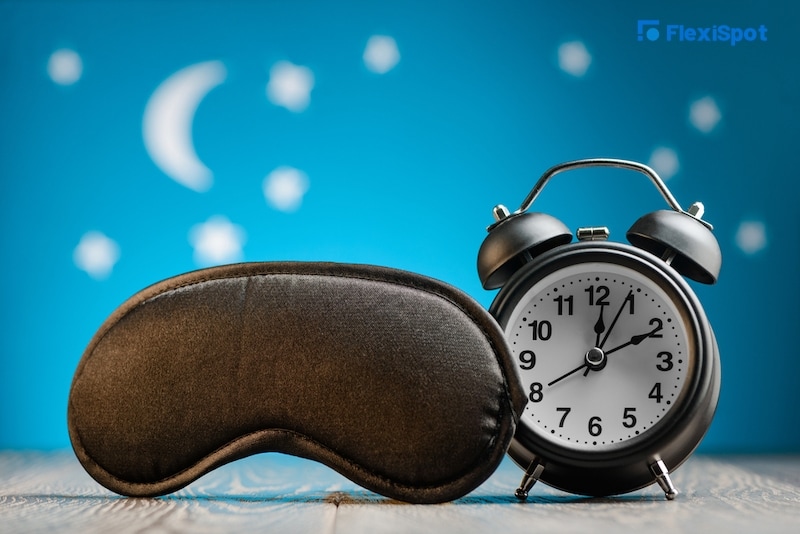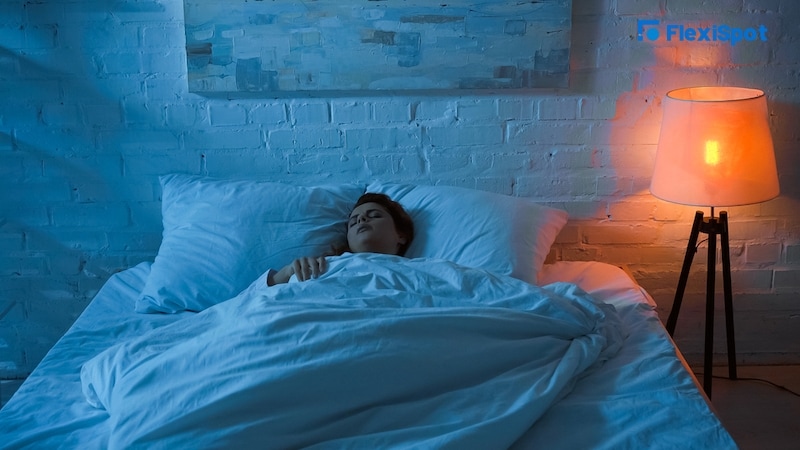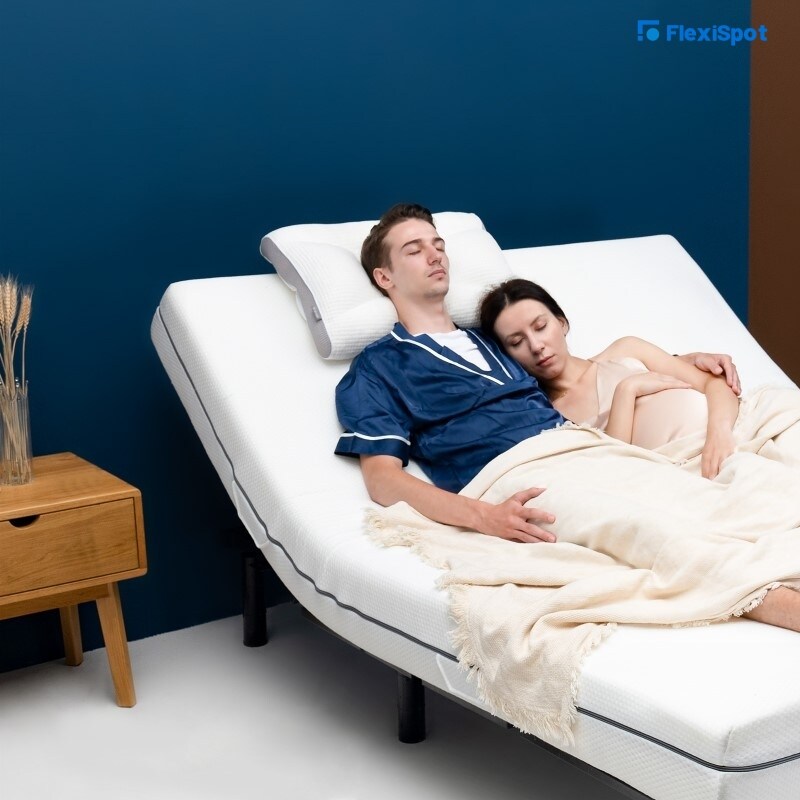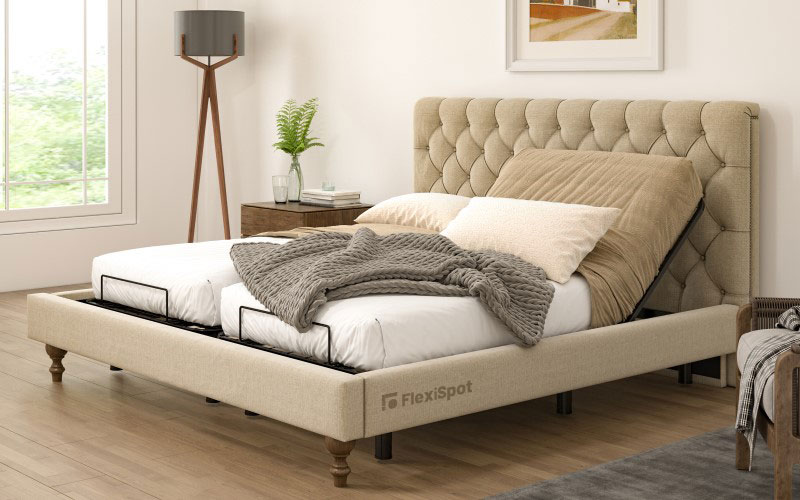Sleep is essential for our health and well-being, yet many don’t get enough of it. According to the National Sleep Foundation, adults should be getting 7-9 hours of sleep per night. However, a recent study found that almost 35.2 % of adults get less than seven hours of sleep per night.
Going by these statistics, there is a high chance you are among those not getting enough sleep. And even if you are getting the recommended 7-8 hours per night, your sleep quality may not be as good as it could be. This is contributed by many factors, including lifestyle choices, routines, and the sleeping setup you have adopted.
Most people know that getting a good night’s sleep is essential, but few realize just how essential sleep is to the overall functioning of the body and mind. During sleep, the body rests and repairs itself, and the brain consolidates memories and processes information. Therefore skimping on shut-eye can take a toll on your health, mood, and productivity
Lack of sleep can lead to problems with concentration and focus, impair cognitive function, and increase accident rates, anxiety, and irritability. In the long term, chronic sleep deprivation can contribute to serious health problems, including obesity, heart disease, weight gain, obesity, and diabetes, among other complications. Because of this, it's important to make sure that you're getting both enough sleep and, at the same time, high-quality sleep.
Some simple changes in your lifestyle, routine, and sleeping setup can mean the difference between a restless night spent tossing and turning and a restful one spent in deep, refreshing slumber. Here are a few tips that can help you get the best possible rest:

Keep a Sleep Diary
This involves tracking your sleep habits over time so that you can identify patterns and potential problems. Once you know what's interfering with your sleep, you can take steps to address it. There are a number of free sleep diary apps available on the market

Establish a Regular Sleep Schedule and Stick to it
Most people have a functional natural sleep-wake cycle, or circadian rhythm, that tells their bodies when it is time to sleep and wake up. A small part of the brain controls this cycle called the suprachiasmatic nucleus (SCN), which responds to light and darkness. The SCN tells the body to release certain hormones, such as melatonin, which helps regulate your sleep patterns.
Establishing a regular sleep schedule helps keep the SCN in sync to effectively regulate your natural sleep-wake cycle. Go to bed at the same time every night and wake up at the same time every morning, even on weekends. This will help your body get into a rhythm and make it easier to fall asleep and stay asleep.

Adjust your Sleeping Environment to Create a more Conducive Atmosphere
Most people spend a third of their lives asleep, so it's important to ensure that your sleeping environment is conducive to a good night's rest.
One simple thing you can do is make sure your room is dark, quiet, and cool. This means eliminating any sources of light and noise that might disturb your slumber.
Darkness: Melatonin is a hormone that helps regulate sleep, and its production is inhibited by light. So if you want to increase the amount of melatonin your body produces, make sure your room is as dark as possible. This means eliminating any sources of light that might enter the room, such as from electronics or outside light sources. You can use blackout curtains or an eye mask to further block out light.
Quietness: Noise can disrupt sleep, so try to create a quiet environment. Eliminate any potential sources of noise. This may mean using earplugs, a white noise machine, or noise-canceling headphones to drown out any unwanted noise.
Coolness and Ventilation: Make sure that the temperature of your room is cool and comfortable - not too hot or too cold. In general, a cooler environment promotes sleep, so try to keep your room temperature between 60-67 degrees Fahrenheit. This may mean opening a window slightly or investing in a fan or air conditioner to keep the room cool and comfortable. These changes will also make sure your bedroom has adequate ventilation by ensuring fresh air circulation, further improving sleep quality.
Reserve your bed for sleeping only: You associate your bed with being awake and active when you work in bed. This can make it more difficult to fall asleep when you're ready to call it a night. To promote better sleep, create a designated workspace outside of your bedroom.

Think About What you're Eating and Drinking Before Bed
When it comes to getting a good night's sleep, what you eat and drink can make a big difference.
While you might be tempted to have a late-night snack or have one last drink for the day, this can actually end up disrupting your sleep.
So what should you eat and drink before bed? Here are a few tips:
1. It's important to avoid eating or drinking anything too close to bedtime so that your body has time to digest before you lay down. This means that you should aim to finish your last meal or snack at least two hours before hitting the pillow.
2. Focus on eating a heart-healthy diet with plenty of vegetables, fruit, and healthy fats. This type of diet is not only good for your overall health, but it may also help you to fall asleep faster and stay asleep for longer.
3. Try to avoid foods or drinks that are high in sugar or caffeine. Both of these can act as stimulants and make it harder for you to fall asleep. Caffeine can stay in the body for up to eight hours, making it a poor choice for late-night consumption. Instead, opt for something that will help you relax, like water, herbal tea, or a small glass of warm milk. Chamomile tea is especially good for promoting sleep. Just be sure to avoid adding any caffeine-containing herbs to your tea. Milk contains tryptophan, an amino acid that has been shown to promote sleepiness.
4. Avoid alcoholic drinks. Alcohol may help you fall asleep initially since it is a sedative in large amounts, but it can actually lead to poorer quality sleep later in the night as it causes the body to produce less of the hormone melatonin. Alcohol also interferes with the function of the airway muscles, which leads to difficulty in breathing and eventually restlessness during sleep. On top of all that, alcohol is a diuretic, which means it causes the body to lose fluid through urine production. This can lead to dehydration, which can further impair sleep quality.
5. It's important to eat a light evening meal. Eating a large meal before bed can cause indigestion and make it difficult to fall asleep.

Invest in a Quality Mattress, Pillow, and Bedframe
A good mattress can help improve sleep quality in several ways. First, it can provide the right amount of support for your body, which helps to reduce body aches/pain and improve your posture. Second, it will also mold to the contours of your body, providing pressure relief and helping to keep your spine in alignment, which allows you to sleep more comfortably. Third, a good mattress can provide the proper level of firmness, which can help to distribute your body weight evenly and prevent pressure points from developing. Finally, a good mattress can help regulate body temperature, keeping you cooler in the summer and warmer in the winter months. You can find the perfect mattress for a good night’s sleep with a little research.
A good pillow should be firm yet soft. It should also contour to your head and neck without causing any pain or pressure points. By supporting your head and neck properly, a good pillow helps keep your spine aligned and prevents pain or tension in the neck and shoulders. This leads to a more restful night's sleep and improved overall health. Additionally, it's important that your pillow is made from a natural material like cotton or wool, as these materials allow your skin to breathe.
The bed frame on the other side is often overlooked as an important piece of furniture. However, it plays a crucial role in providing support for your mattress and ensuring a comfortable night's sleep.
A good bed frame will keep your mattress in place, preventing it from sagging or slipping. It will also provide a stable surface for you to sleep on while also absorbing some of the shocks from movements during sleep, reducing the instances of tossing and turning during the night, as well as providing adequate support for the back and spine. Additionally, it helps to distribute weight evenly, reducing pressure points that can cause discomfort and disruption to sleep.
On top of its functional benefits, a bed frame can also add an element of style to your bedroom. Bed frames come in various materials, sizes, and styles to suit any home décor. From sleek and modern designs to traditional and rustic styles, there is a bed frame to suit every taste.

Flexispot Adjustable Bed Base EB01
Flexispot Adjustable Bed Base EB01 is an example of a bed frame that exactly fits this description.
Here are some reasons as to why its an excellent option for those looking for adjustable comfort and support:
At the touch of a button, you can raise or lower the head of the bed (0-60°) to find your perfect comfort level for your various activities, e.g., reading, watching TV, or working on a laptop in bed. This can be a great option for people who suffer from back pain or difficulty getting up from a lying down position, e.g., the elderly.
The motorized base delivers a quiet, max thrust of 6000N (600kg), which is sufficient to handle a weight capacity of about 600 lbs (equivalent to the weight of 3 adult men).
You'll appreciate the sound level too, which is <50db.
The six-legged design and sturdy steel construction ensure the bed's stability, even when fully reclined.
The bed base also features a durable design that has passed over 10,000 standard tests, making it a reliable and long-lasting product.
It can be used as either a stand-alone support system or fitted seamlessly into most standard-sized beds. It comes with three height options: 3", 6" & 9".
Not only is the FlexiSpot bed frame comfortable and supportive, but it also provides extra storage space. The under-bed storage space is a maximum of 9" high and can hold up to 15.8 cubic feet. This is a great way to maximize your bedroom space and keep your room tidy.
By investing in these three items, you can create the perfect environment for a restful night's sleep.

Exercise Regularly, but Not Right Before Bed
Exercise has been shown to improve sleep quality, especially for people who suffer from insomnia or other sleep disorders. In one study, people who exercised moderately slept better and felt more rested during the day than those who didn't exercise. This is because exercise increases the amount of time spent in deep sleep, which is the most restorative stage of sleep. Deep sleep helps to repair muscles, restore energy levels, and promote cell growth.
On the other hand, poor sleep can lead to fatigue and make it harder to stick with an exercise routine. When you're tired, you're less likely to have the energy or motivation to work out. This is a vicious cycle that can be difficult to break out of. However, understanding the relationship between exercise and sleep can help people make lifestyle changes that lead to better sleep habits.
Exercise can help break this cycle by improving sleep quality and promoting wakefulness during the day. You can do this by slowly adding some moderate exercise to your regime until you get used to it.
Just be sure to finish your workout at least a few hours before bedtime to avoid getting too revved up before trying to sleep.

Winding Down Before Bedtime (Create a Soothing Bedtime Routine)
This might include taking a warm bath, reading for a half-hour, or listening to calm music before turning out the lights. Doing the same things each night signals to your body that it's time to start winding down and preparing for sleep.
However, there is no one-size-fits-all solution. Each person will find different activities that help them relax, so it’s important to experiment to find what works best for you. Some activities you can try out include :
a. Relaxation techniques: There are many different techniques available, so it’s again important to find what works best for you. One popular technique is progressive muscle relaxation, which involves slowly tensing and relaxing each muscle group in the body. Other relaxation techniques include deep breathing exercises, visualizations, and guided meditation.
b. Reading can also be a helpful way to wind down before bedtime. It can be a way to forget about the day’s stresses and escape into another world. When choosing a book to read before bed, look for something that is calming and not too stimulating.
c. Writing in a journal is another activity that can help you wind down before bedtime. It can be a way to process your thoughts and emotions from the day, and it can help you clear your mind so that you’re ready for sleep. If you find that you tend to worry about things at night, writing in a journal can also be a way to get those worries out of your head so that they don’t keep you up.
Ultimately, the goal of winding down before bedtime is to find activities that help you relax and clear your mind.

Limit Screen Time Before Bed
According to the National Sleep Foundation, using electronic devices before bed can have a major impact on sleep. The bright light from screens suppresses melatonin production, a hormone that helps regulate the sleep-wake cycle.
Additionally, the constant flow of information can keep the mind active and make it difficult to relax.
For these reasons, it's important to limit screen time before bed. This means turning off all screens at least 30 minutes before you want to fall asleep. If you need to use a screen during this time, try wearing blue-light-blocking glasses or downloading a software program that filters out blue light. By making these simple changes, you can help ensure a good night's sleep.

See a Doctor if You're Still Struggling
Now that we’ve covered the basics of how to improve your sleep quality, it’s time to put this information into practice. Start by making a few small changes in your daily routine and see if you notice a difference in your sleep patterns and quality. If you still aren’t sleeping as well as you’d like after a week or two, consider speaking with your doctor about other possible solutions. Sleep problems can be caused by underlying medical conditions, and a doctor can help you determine if you have a sleep disorder and develop a treatment plan.